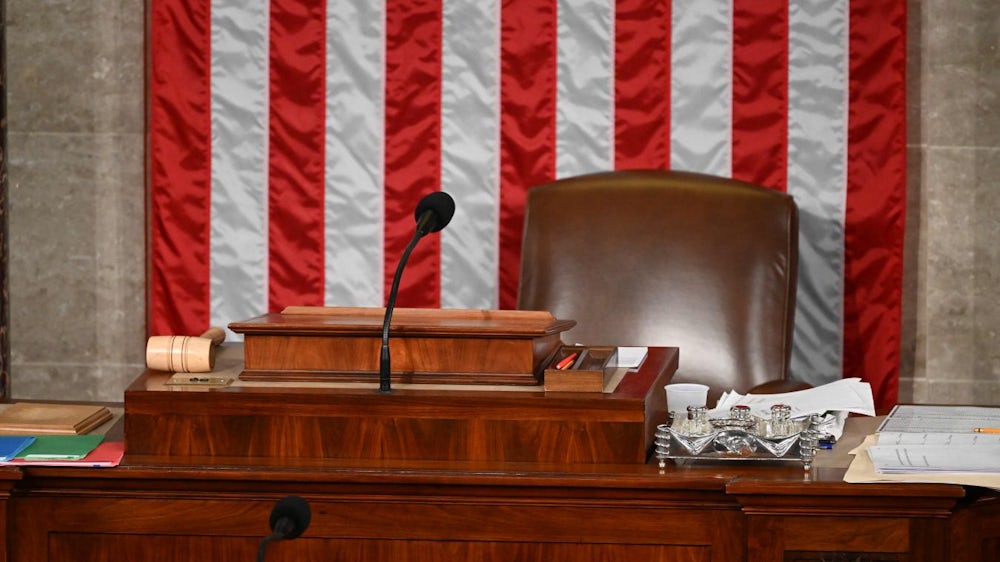The situation is serious, Steven Levitsky and Daniel Ziblatt leave no doubt about that. Her book “How Democracies Die” became a bestseller in 2017 ( SZ review here) because the election of Donald Trump as US President surprised and shocked many. The authoritarian “attack on American democracy” under Trump has exceeded everything they could have imagined in 2017, the author duo write in the sequel entitled “The Tyranny of the Minority,” which hits bookstores this Wednesday. Political science actually agreed: Rich democracies don’t die any more than old democracies, and the USA is without a doubt rich and old.
The two Harvard professors warn against succumbing to the error of Trump’s defeat by Joe Biden in 2020, “as if we had dodged the bullet – as if the system had ultimately worked.” She is also not reassured by the fact that all Republican candidates who continue to refuse to recognize Trump’s defeat lost in the 2022 congressional election. The problems run much deeper, and they mostly have to do with the 1787 U.S. Constitution, the oldest written constitution in the world.
Latinos and African Americans continue to face discrimination
The subtitle “Why American democracy is on the brink and what we can learn from it” makes the claim clear: In addition to an analysis with exciting details of US history and international comparisons, the authors also offer solutions. Two terms are central: “multi-ethnic democracy” and “tyranny of the minority”.
In a multi-ethnic democracy there are “regular, free and fair elections in which adult citizens of all ethnic groups have both the right to vote and basic civil liberties such as freedom of expression, freedom of the press, freedom of assembly and association”. What is crucial is that the rights really exist and there is no discrimination. There is currently no question of this: Blacks and Latinos have access to the vote made difficult by burdensome rules, and “laws that deprive those with a criminal record of the right to vote disproportionately affect African Americans.”
The concept is important given the demographics: While in the 1960s almost 90 percent of the US population was white, now it is 60 percent. And among those under 18, white people are already in the minority. In response to the civil rights movement of the 1960s and the reform laws, the party system changed: the Democrats lost the southern states and the Republicans became the party of white Christians.
They are the group who are now convinced that their country is changing for the worse – and are therefore critical of multi-ethnic democracy. This is also why, according to Levitsky and Ziblatt, the Republicans are pursuing anti-immigrant policies – even before Trump’s candidacy for president.
The election winners cannot achieve enough
The provocative term “tyranny of the minority” describes the phenomenon that the protective rights of the minority are now too strong in the US political system. When the Constitution was written in Philadelphia in 1787, the white men gathered there worried that the majority could push through too much – and developed “counter-majoritarian” institutions. Several now mean that the USA is now a country that does not live up to “its democratic ideals”.
The first problem identified is the US Senate, to which each of the 50 states sends two people. As a result, a voter in Wyoming (pop. 575,000) has about 70 times more power than a voter in California, home to 40 million people. Rural areas are given enormous preference – and the Republicans almost always win there. This is relevant because the Senate and House of Representatives (where one representative represents Wyoming and 52 politicians represent California) have equal rights in the legislative process. In addition, there is Filibuster : In order to end this veto right of senators, a qualified majority of 60 votes is necessary – in times of narrow majorities and great polarization, many bills die a quiet death.

The second problem is the US Constitution. Levitksy and Ziblatt believe they are no longer up to date because the hurdles to change are too high. In addition to a two-thirds majority in the Senate and House of Representatives, it also needs the approval of three-quarters of the states – no wonder that the last constitutional amendment was 32 years ago. That is also highly problematic electoral college, the 538-member Electoral College. Such an indirect presidential election not only favors small states: it also allows losers in the general election to still win the presidency. This happened with George W. Bush in 2000 and with Trump in 2016.
It is possible to drift into authoritarianism at any time
The following scenario is apt: “An American born in 1980 who voted for the first time in 1998 or 2000 saw that the Democrats won in every six-year cycle of the US Senate and in all but one presidential election won direct election, but he still spent most of his adult life under a Republican presidency, a Republican Senate majority, and a Supreme Court dominated by Republican candidates.” It is obvious that this undermines trust in US democracy.
The Supreme Court is the third problem: “The court’s conservative majority was installed by a partisan minority.” Because thanks to that electoral college Trump (he received fewer votes than Hillary Clinton in 2016) was able to propose to the Republican majority in the Senate (here too, the Democrats actually received more votes) two relatively young judges and one female judge who are now appointed for life and have probably been doing justice for decades.

But are the authors biased if they only criticize the Republicans and almost with relish Economist quote, according to which the Grand Old Party had “said goodbye to democracy”? Reading the book provides a wealth of evidence of Republican politicians using every means possible to keep voter turnout low or to stir up the fears of their core constituency. Only in 2012, after Obama’s re-election, did people seriously consider appearing more inclusive and, for example, wooing Latinos.
In the future, it would be better to hold elections on the weekend
“We’re not generating enough angry white people to stay in business long-term,” Sen. Lindsey Graham said at the time. Today he is an absolute Trump fan, and therefore, according to Ziblatt and Levitsky’s definition, like dozens of high-ranking Republicans, he is only a “semi-loyal” Democrat: for them, their own careers and the success of their party are more important than the defense of democratic institutions. They make it possible to drift into authoritarianism because they do not distance themselves clearly enough from Trump and his lies and attacks on judges and constitutional bodies.
The suggestions for how the US could reach the level of comparable established democracies are unsurprising but precise. In the future, elections should be held on weekends and all citizens should be automatically registered – this would protect poorer people and thus minorities. In order to ensure that the election outcome corresponds to the will of the majority, the president should be directly elected in the future and the Senate should be enlarged. In order to strengthen the governing majorities, the… Filibuster be abolished and the terms of office of judges on the Supreme Court limited – for example to twelve or 18 years.
Steven Levitsky and Daniel Ziblatt do not expect their ideas to be implemented quickly. They want to stir things up with their book, which is worth reading, because so far the public debate has lacked any imagination for changing the constitution. What is needed is a new civil rights movement that takes up the “long and arduous fight” to effectively protect US democracy from people like Donald Trump. But doing nothing is not an option: “Future generations will demand accountability from us.”

